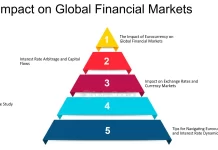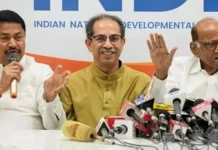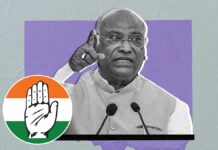Union Finance Minister Nirmala Sitharaman stated on Tuesday that in order to achieve the goal of making India a developed nation by 2047, the industry should support the nation’s developmental interests.
Speaking at Ficci’s National Conclave on Viksit Bharat @ 2047: Viksit Bharat & Industry, Sitharaman stated that the government’s top priorities going forward will be reforms pertaining to digital infrastructure and all three factors of production (land, labour, and capital).
The changes will affect your land, labour, and capital, among other factors of production. In addition, I’ll add another factor—enterprise—that might not fall under the conventional definition of a factor of production. The digital infrastructure is likely the additional factor of production that comes with the 21st century. Without digital infrastructure, no nation can now effectively accomplish developmental goals for its own citizens at the speed that is desired, according to Sitharaman.
“Aside from the traditional factors of production like land, labour, capital, and the enterprise, I would put Digital Infrastructure as an important factor, without which we will not be able to scale up and bridge the gap with those who are still aspiring to move forward,” she continued. “India has demonstrated under Prime Minister Narendra Modi’s leadership how making investments in creating the digital infrastructure at the bottom and scaling it up led to the creation of ‘India Stack.”
Sitharaman stated that the industry supported national interests even during British rule and that the industry’s role would be crucial in achieving Viksit Bharat.
Indian industry has always supported national interests and continued to expand despite strong obstacles posed by the imperial colonial ruler, even during the British colonial era. Therefore, I fail to see how Indian industry will be left out of this race to create a developed India by 2047 if it has consistently maintained that spirit and, in spite of overwhelming odds, has continued to advance national interest. Therefore, it should come as no surprise that the Indian industry would support India’s goals for development. And when India develops, industry will be the first to both contribute and benefit from it,” the speaker stated. “You supported India in its fight for independence and, in spite of colonial pressure, you developed your industry and capabilities. With this goal of Viksit Bharat, it’s time for us to achieve economic independence, and I’m sure industry will play its part,” she said.
The finance minister mentioned that previous generations had experienced a period of scarcity and missed opportunities, adding that there was a period when talented individuals were forced to leave the country due to a lack of opportunities. “It is our responsibility to leave the next generation with a better, opportunity-filled India,” she declared.
According to Sitharaman, the government is concentrating a lot of its efforts in a few areas, including space and artificial intelligence (AI). “We will establish centres of excellence for the same, as we have emphasized that India should become a global hub for AI,” the speaker stated.
In addition to agricultural warehousing, she said, the government is supporting the broader warehousing industry by uniting people and advancing legislation, policy, and investment. The FM also mentioned how much room there is for growth in the logistics industry and how much of India’s potential is still unrealized.


































